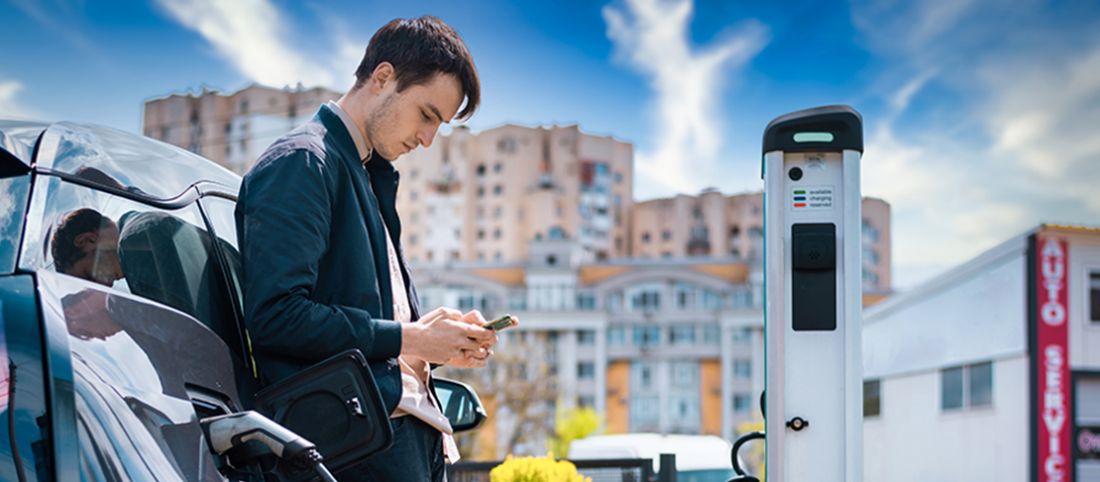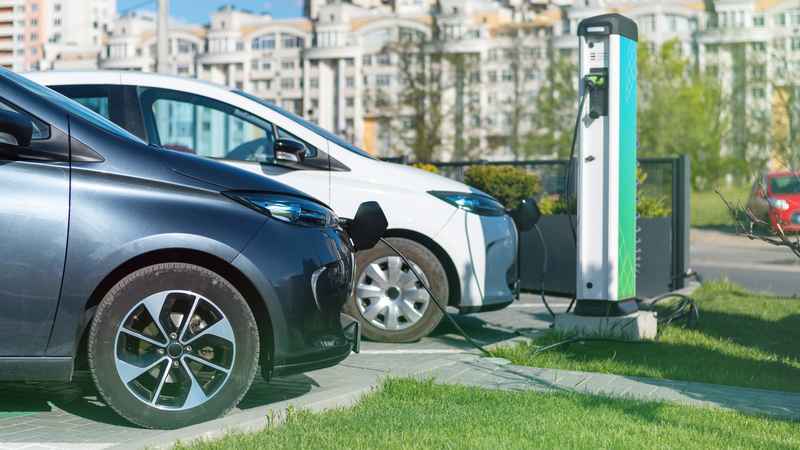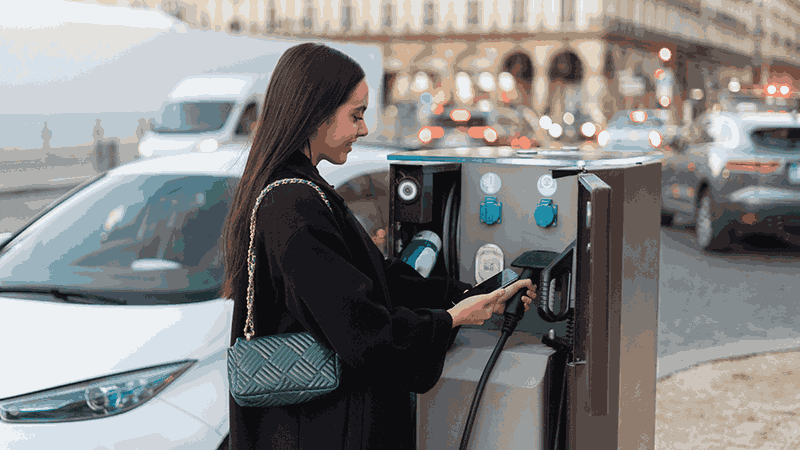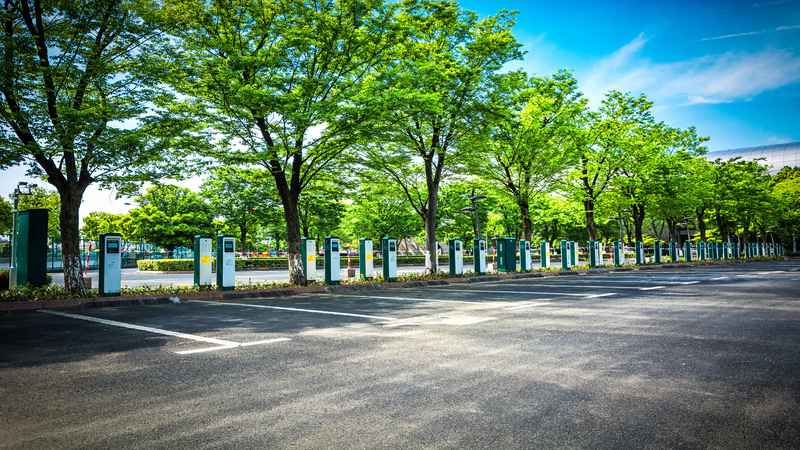Top 10 Cities in Europe with the most EV Charging Stations

While the benefits of electric vehicles are well-documented, many drivers are still reluctant to buy an EV. They are concerned about logistical issues such as perceived lack of electric car charging stations and the charging cost. In Europe, particularly in cities, many homes do not have driveways or garages in which to charge the vehicles, so owners rely on public charging points. Whether you've just purchased your first electric car or are still debating the pros and cons of switching to a zero-emission vehicle - take notes! We've put together a list of the Top 10 cities in Europe with EV charging stations.
Table of contents:
The list
Yes, with 75 000 charging stations, the Netherlands has by far the largest number of electric car charging facilities – nearly a third of the entire EU total. But what cities in Europe have the most EV charging stations? Let’s discover together by going through the list we compiled using data from the mapping service provider HERE Technologies and the EV charging experts at Uswitch.
1. London
The Mayor of London wants London's transportation network to be carbon-free by 2050. This is most likely why of all European cities, London has the largest number of e-filling stations. The city is booming with over 5900 EV charging stations and new ones are being added all the time. Furthermore, with over three charging stations per km2, London has the second-highest EV charger density in Europe.
The municipal infrastructure is being strengthened as more fast chargers are deployed. There are about 500 quick chargers across the city, as well as 5,500 household charge outlets. This is mostly due to the Electric Vehicle Home Charge Scheme (EVHS) that covers up to 75% of the cost of installing an electric vehicle charge point at your house. Charging an EV in London has never been easier, whether you're driving into the city from afar or commuting to a different area of the city.

2. Amsterdam
Amsterdam is ranked second on our list, with 3404 EV charging stations and a density of 2,24 charging stations per km2. The city has approximately 900,000 bicycles, and nearly 60% of youths and adults pedal every day. Nonetheless, Amsterdam has initiated a strategy to eradicate polluting automobiles from the city.
The intention is to extend Amsterdam's five existing low-emission zones and tighten controls on gas and diesel cars. Through a mix of government incentives and energy improvements, residents are encouraged to transition to electric cars, with the goal of removing all gas and diesel automobiles by 2030.
To make the transition smoother for residents, the city is providing some significant benefits. Electric vehicle owners who don’t have their own charging station at home will be able to request that the city construct one at a site of their choice for free as long as it is open to the public.
To meet this development, Amsterdam anticipates that up to 23,000 charging outlets would be required by 2025. The improved air should increase citizens' life expectancy by three months and reduce CO2 emissions by around 10%.
3. Paris
The third on our list, Paris is also undergoing an electric revolution with the objective of being carbon neutral by 2050. The French capital has 2282 EV charging stations and has implemented several incentives to encourage the usage of electric vehicles.
To minimize air pollution, the city authorities had to implement drastic transportation measures including establishing car calmed zones in the historical center. On some of the worst days for air pollution, they have temporarily banned half of the automobiles from driving and made public transportation free. They also established fines for drivers who drive older vehicles that do not meet pollution standards.
The city provides a €6,000 incentive for the purchase of an electric car, which can be supplemented by an additional €4,000 if it is to replace a diesel car. In addition, the parking for all-electric vehicles in the city is free of charge.

4. Berlin
With 1526 EV charging stations and an electric charging point density of 1.27 per km2, Berlin ranks fourth on our list. It has established itself as the city with the most electric vehicle charging stations in Germany.
While there has been an increase in public e-filling stations, the expansion of private charging points has skyrocketed thanks to the development bank KfW’s funding program for charging boxes, which has run out of funds earlier than projected owing to a large number of applications.
The City of Berlin is delighted with this success, but it is already planning further growth of electric car charging infrastructure. As a result, Berlin is developing a strategy to provide much more publicly accessible charging stations, including fast-charging stations.
5. Hamburg
Germany's second-largest city, Hamburg, is a model for eco-friendly urban development: electric mobility, cycle paths, waste reduction, and community revitalization are just a few of the positive practices implemented by the city, which every day demonstrates how to develop economically while respecting the environment.
It features 1385 EV charging stations. Additionally, nine high power chargers (HPCs) are being installed in the city in 2022., with over 2,000 stations to be installed by 2025. Hamburg also provides free parking in the city center for electric vehicles up to the maximum parking duration.
The government is working toward an ambitious target of reducing CO2 emissions by 80 percent by 2050. Hamburg is switching quickly to alternate drives (both battery-electric and based on a hydrogen fuel cell). This includes the migration to innovative charging methods for fast-charging electric automobiles.

6. Munich
With a population exceeding one million, the Bavarian capital Munich is a rising star when it comes to keeping the planet pollution-free. Carbon neutrality is one of the key objectives of Munich's environmental policy. Therefore, the city has been investing heavily in clean energy projects and fighting against global warming aiming for 100% clean energy by 2025. This would make Munich the first city with over one million residents to achieve this lofty goal.
Munich has 1025 EV charging stations as well as low emission zones where high-emission vehicles are no longer permitted. In recent years, the e-car market has flourished in Munich thanks to the many benefits associated with owning an electric vehicle there, such as special incentives for private EV charger purchases and installation, including a 40% net cost savings.
Since April 2022 the city has been a member of the European Commission's '100 EU climate-neutral and smart cities' initiative. The initiative's research and innovation actions address clean mobility, energy efficiency, and green urban planning, while also providing the opportunity to build joint initiatives and expand collaborations in synergies with other EU programs.
7. Vienna
Vienna is the greenest of the world's 50 most visited cities according to a study evaluating parks, renewable energy, public transportation, water consumption, walkability, recycling, and air pollution.
There is no question that e-mobility is gaining traction in Vienna. The city offers 953 EV charging stations, which means that you can charge an electric car almost everywhere. There is an electric charging station, on average, every 400 meters. A vehicle's tank may be filled with 100% green power at any of these locations.
Both the purchase of electric vehicles and the installation of charging infrastructure are subsidized by public funding – and even more generously since summer 2020. In addition to private persons, corporations and electric vehicles or buses sometimes get special support.

8. Frankfurt and Copenhagen
With a total of 383 EV charging stations, Frankfurt, and Copenhagen tie for eighth place.
There are many EV in Frankfurt today. In fact, official figures show that 10% of all vehicles in Frankfurt are already electric or hybrid and the city is taking steps to ensure that drivers have access to infrastructure for charging those vehicles. As a result, Frankfurt has a new project to install over 280 charging stations for electric vehicles in the city's urban car parks by the end of 2023.
Copenhagen, Denmark's capital, was crowned European Green Capital in 2014 and has set an ambitious aim of installing publicly accessible charging points at a maximum distance of 250 meters from all multi-story buildings by 2025. Indeed, the capital wants to ensure that all drivers of electric and hybrid vehicles have easy access to the infrastructure they require.
10. Rome
Rome is also undergoing green mobility makeover. The city's Sustainable Urban Mobility Plan (SUMP) aims to improve access, quality of life, public health, and environmental sustainability.
There are 375 EV charging stations throughout the city. The charging infrastructure provides the necessary technological connectivity to enable the development of smart, integrated mobility choices.
By 2025, nearly all city-center-serving buses will be electric, and the new fleet will gradually replace all older versions. Through its involvement in the USER-CHI project, Rome is exploring innovative charging methods for electric cars, bicycles, and e-kick scooters in tandem with its investments in sustainable public transportation.
What does the future hold?
Europe currently has 374,000 public chargers, with two-thirds concentrated in just five countries - the Netherlands, France, Italy, Germany, and the UK. At the same time, some European countries do not have a single charger per 100 km of road, and this polarization between economies risks destabilizing electrification.
According to the report's projections, Europe's EV charging station count must increase to 65 million by 2030 - 9 million public and 56 million household chargers - to meet the massive boom in EVs predicted. The figure must then be doubled over the next five years because Ernst & Young predicts that the number of electric vehicles will reach 130 million EVs by 2035.

The importance of increasing EV charging infrastructure usability
Aside from overseeing the installation of millions of charges, Europe’s utility industry will need to increase EV charging infrastructure usability by ensuring that parking spaces and post-charging areas are available and secure so that all customers can charge their vehicles.
The most important issue to successfully manage and reduce is "ICEing." The ICEing incidents occur when an electric vehicle is prevented from using a parking space reserved for EVs by a vehicle with an internal combustion engine (ICE). The EV Charging Station Parking Management Solutions and Systems case study provides additional information on the parking challenges faced by EV charging stations and how to effectively resolve them.
Final Thoughts
Despite the fact that climate change agreements are led by counties, many cities around the world are seizing control and shifting their energy sources and investments toward renewable energy. Cities have a greater capacity for innovation and can tailor their climate change projects to benefit their region, resulting in cleaner jobs and a carbon-free economy.
By integrating a large number of electric vehicles (EVs), the above-mentioned European cities expect to pave the way for green mobility with zero carbon emissions. We hope that other cities around the world will follow their example and take the initiative to implement EV systems in their cities, improve their quality of life, combat climate change and become a leader in renewable energy leaders.


